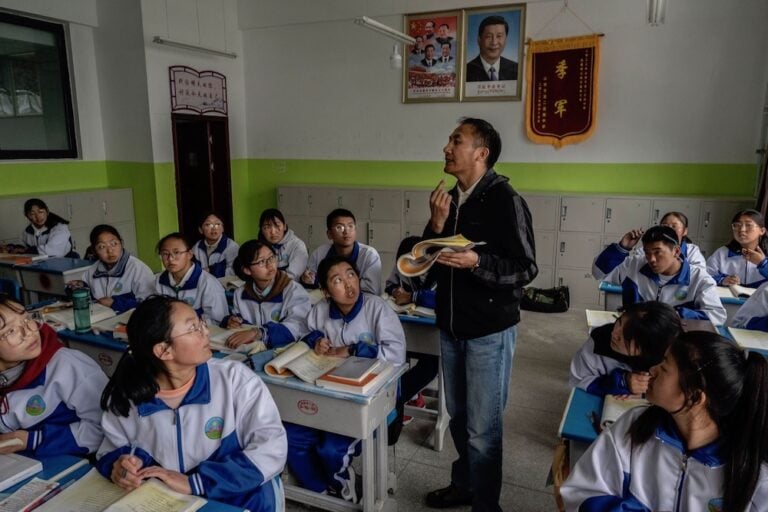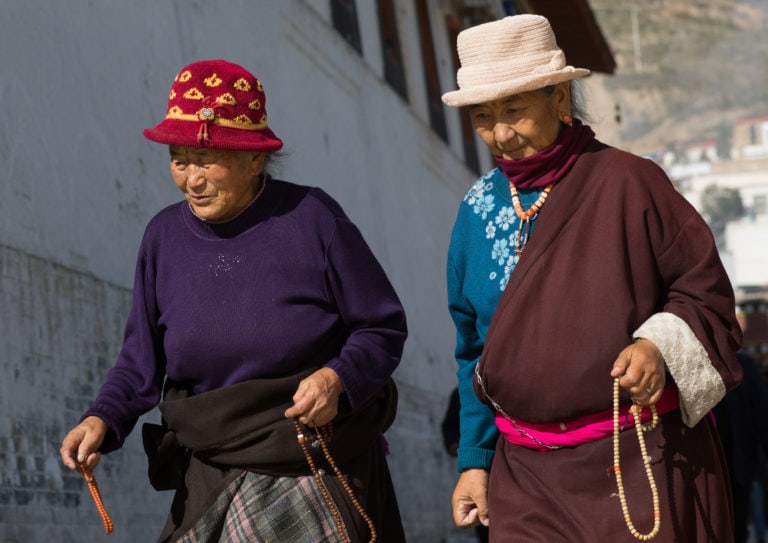(WiPC/IFEX) – WiPC is seriously concerned for the health of teacher and writer Dolma Kyab (aka Lobsang Kelsang Gyatso), whose health is said to have deteriorated in detention. International PEN believes Dolma Kyab, who is serving a 10-year sentence for his writings, is held in violation of his rights to freedom of expression as guaranteed […]
(WiPC/IFEX) – WiPC is seriously concerned for the health of teacher and writer Dolma Kyab (aka Lobsang Kelsang Gyatso), whose health is said to have deteriorated in detention. International PEN believes Dolma Kyab, who is serving a 10-year sentence for his writings, is held in violation of his rights to freedom of expression as guaranteed under Article 19 of the United Nations International Covenant on Civil and Political Rights, to which China is a signatory, and is calling for his immediate and unconditional release. PEN is also seeking assurances that he is receiving all necessary medical care.
According to information received in July 2007, Dolma Kyab was transferred to Seilong (Xining) prison, about 400 kilometres from Lhasa, on 19 July 2007 where he is serving the remainder of his sentence. Seilong prison is a labour camp where prisoners undergo “re-education through labour”. A former detainee reports to have met Dolma Kyab there a few days before he was released. He also stated that Dolma Kyab seemed to be in very poor health and suffering from some medical condition.
Dolma Kyab is imprisoned for writing a comprehensive study about Tibet. The manuscript, written in Chinese, is entitled “Sao dong de Ximalayashan” and is reportedly a compilation of 57 chapters covering various topics including democracy, the sovereignty of Tibet, Tibet under communism, colonialism, and religion. Dolma Kyab is also said to have started another manuscript on the geographical aspects of Tibet, which was comparatively short yet touched on sensitive topics about the location and number of Chinese military camps in the Tibet Autonomous Region (TAR).
Dolma Kyab was reportedly arrested on 9 March 2005 in Lhasa, where he was teaching History at a Middle School. He was held pending trial at the Public Security Bureau Detention Centre, on charges of “endangering state security”, and sentenced on 16 September 2005 by Lhasa Intermediate People’s Court to 10 years in prison. The sentence was upheld on appeal on 30 November 2005. In March 2006 he was transferred to Chushul Prison on the outskirts of Lhasa. While in the Public Security Bureau Detention Centre, Dolma Kyab contracted tuberculosis for which he received medical treatment before his transfer to Chushul Prison.
The Tibetan Centre of PEN provides the following background for Human Rights and Democracy (TCHRD), http://www.tchrd.org/ :
“Dolma Kyab was born in 1976 in Ari Village, Qilian County,Tsochang Tibetan Autonomous Prefecture, Qinghai Province. He attended the local Primary School in 1984 and later joined the County Middle School. After completing his schooling in 1995, he joined a Teachers Training Centre and served as a teacher in a Middle School in Qilian County. He later went to a University in Beijing to continue his studies. In 2003, he went to India to learn English and Hindi and returned to Tibet in May 2004. Upon return, he served as a History teacher in a Middle School in Lhasa until his arrest.”
RECOMMENDED ACTION:
Please send appeals to authorities:
– expressing concern for Dolma Kyab’s health following reports that it has considerably worsened in recent weeks
– seeking assurances that he is receiving all necessary medical care
– protesting the 10-year prison sentence handed down to Dolma Kyab
– calling for his immediate and unconditional release
APPEALS TO:
His Excellency Hu Jintao
President of the People?s Republic of China
State Council
Beijing 100032
P.R.China.
Procurator General Mr. Jia Chunwang
Supreme People’s Procuratorate
Beiheyan Street 147
100726 Beijing
P.R.China
Please note that fax numbers are no longer available for the Chinese authorities, so you may wish to ask the diplomatic representative for China in your country to forward your appeals.
Centres may find that the Chinese representative in their own countries are more likely to respond to appeals, so please copy to your Chinese embassy or write in place of the above address.


